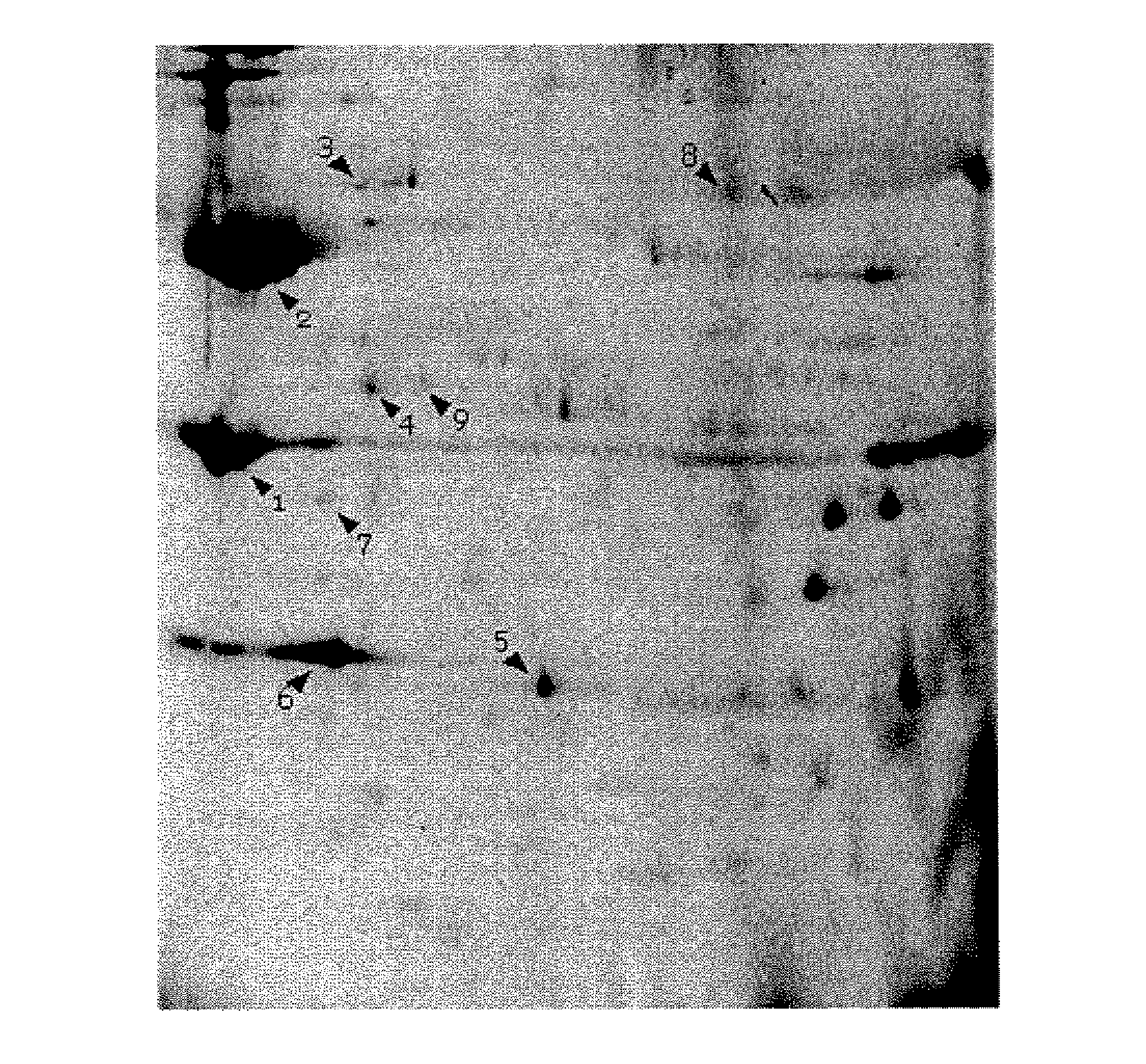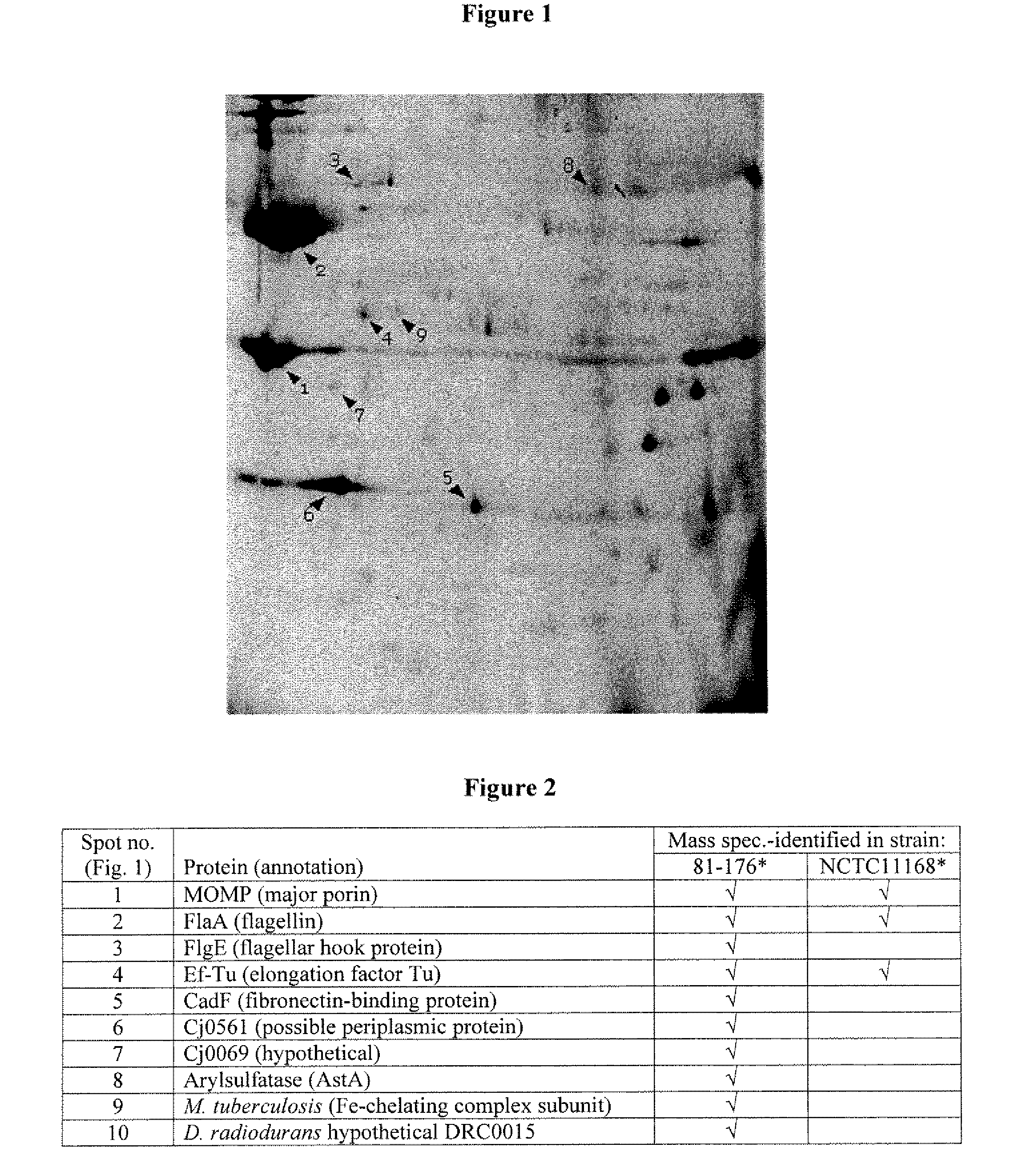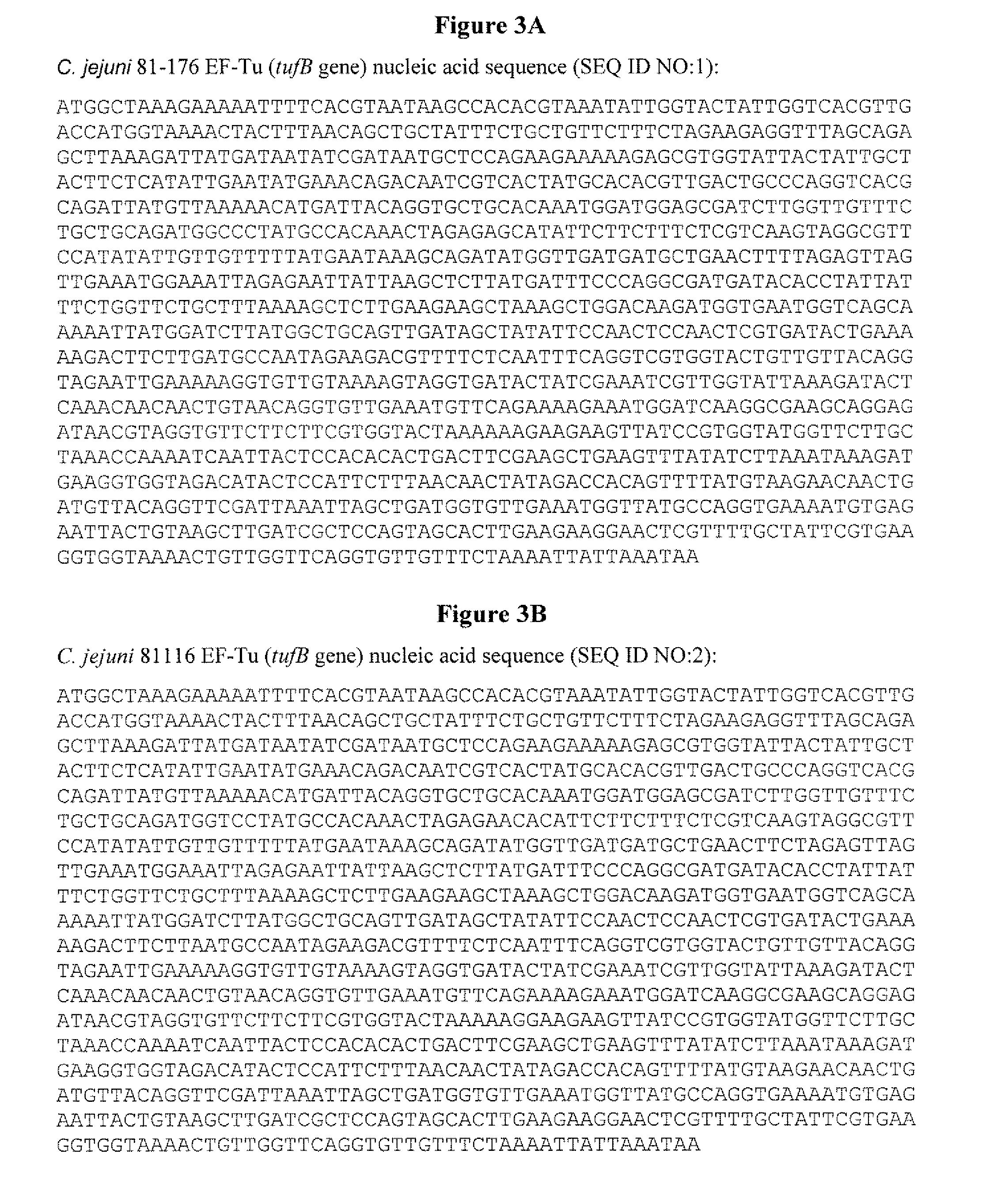Campylobacter Jejuni Outer Membrane Protein Immunogenic Composition
a technology of outer membrane protein and campylobacter jejuni, which is applied in the field of therapeutic agents, can solve the problems of not being an ideal candidate for immunogenic composition, not likely to be complete, and not yet protected, and achieves the effect of inhibiting campylobacter infection and reducing the rate of subsequent infection
- Summary
- Abstract
- Description
- Claims
- Application Information
AI Technical Summary
Benefits of technology
Problems solved by technology
Method used
Image
Examples
example 1
Proteomic Analysis of C. jejuni Outer Membrane Proteins
[0109]C. jejuni outer membranes were purified using standard methodology (Hickey et al., 1999 Infect Immun., 67:88-93; Thompson & Sparling, 1993 Infect Immun., 61:2906-2911). Briefly, C. jejuni strains 81-176 and NCTC11168 were grown to mid-log phase in Brucella broth at 37° C., and harvested into 50 mL polypropylene tubes containing 4 μL chloramphenicol (32 mg / mL) per 1 mL of culture volume at 4° C. Cells were pelleted at 4000 rpm for 20 minutes at 4° C. The supernatant was discarded, and the pellet was resuspended in 1 mL of 10 mM HEPES, pH 7.4 and transferred to 1.5 mL microfuge tube. The cells were lysed by sonication (Sonic Dismembrator 60, Fisher Scientific) at power setting 7 using 10 second bursts followed by 20 seconds in ice for approximately 5 cycles, and residual unlysed cells were pelleted by low speed centrifugation for 5 minutes at 14,000 rpm. The supernatant was transferred to an ultracentrifuge tube and the pell...
example 2
Identification of Outer Membrane Proteins
[0114]Using the methods as described in Example 1, preliminary mass spectrometry analysis of C. jejuni outer membrane proteins has allowed for the identification of some of the known, major proteins found in the C. jejuni outer membrane. Some of these are already known to be variable at the level of primary amino acid sequence, and some are not found in all C. jejuni strains. Interestingly, some of the proteins found in the outer membrane, such as EF-Tu, were known to be present in C. jejuni, but were not previously known to be outer membrane proteins, and thereby, may be novel subunit immunogenic composition candidates. Others proteins identified had not previously been characterized in C. jejuni, but had been characterized in other organisms such as M. tuberculosis.
[0115]The preliminary screen identified 10 outer membrane proteins, including major outer membrane protein, Flagellin A, flagellar hook protein (FlgE), Elongation factor Tu, Cam...
example 3
Identification of Outer Membrane Proteins from 7 Different Campylobacter Strains
[0130]The outer membrane proteins of 7 different Campylobacter strains are identified to find highly conserved proteins as the basis for a subunit immunogenic composition. Two approaches are used. First, proteomics / mass spectrometry is used to directly identify the proteins that constitute the outer membranes of these 7 Campylobacter strains. Second, the immunogenicity of the outer membrane proteins in humans is identified by immunoblotting 2-D protein gels with convalescent human serum.
[0131]The identities of the outer membrane proteins of interest are confirmed by creating specific mutants lacking the outer membrane proteins. Representative outer membrane protein-encoding genes are sequenced from each of the 7 strains to determine the degree to which these genes (and the encoded outer membrane proteins) are conserved.
[0132]The seven Campylobacter strains tested are C. jejuni 81-176, NCTC 11168, 81116, ...
PUM
| Property | Measurement | Unit |
|---|---|---|
| time | aaaaa | aaaaa |
| time | aaaaa | aaaaa |
| time | aaaaa | aaaaa |
Abstract
Description
Claims
Application Information
 Login to View More
Login to View More - R&D
- Intellectual Property
- Life Sciences
- Materials
- Tech Scout
- Unparalleled Data Quality
- Higher Quality Content
- 60% Fewer Hallucinations
Browse by: Latest US Patents, China's latest patents, Technical Efficacy Thesaurus, Application Domain, Technology Topic, Popular Technical Reports.
© 2025 PatSnap. All rights reserved.Legal|Privacy policy|Modern Slavery Act Transparency Statement|Sitemap|About US| Contact US: help@patsnap.com



